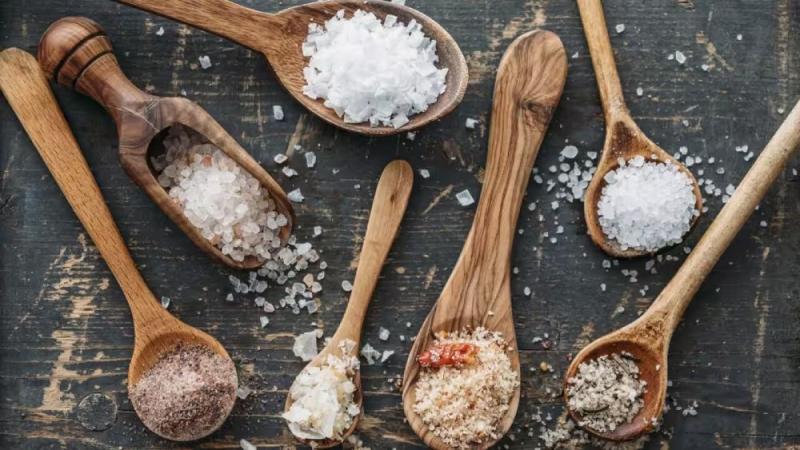Healthy Salt Substitutes: A Better Way to Season Your Meals

The search for healthier salt substitutes has gained momentum as more people recognize the dangers of excessive sodium intake. Traditional table salt, while enhancing the flavor of our meals, poses health risks, especially for those with high blood pressure and heart disease. Finding an alternative that can replicate the taste of salt without the negative health effects is crucial. Fortunately, there are several healthy salt substitutes available that can help maintain flavor without compromising your well-being. In this blog, we’ll explore some of the best options for a healthy salt substitute, focusing on the benefits they offer and how to incorporate them into your diet.
Why Seek Salt Substitutes?
Before diving into the alternatives, it’s important to understand why reducing salt is essential for health. Sodium, which is the main component of salt, helps regulate fluid balance in the body and supports nerve and muscle function. However, too much sodium can lead to serious health problems, including:
- High Blood Pressure: Excessive sodium intake is a leading cause of hypertension, which increases the risk of heart disease, stroke, and kidney damage.
- Water Retention: High sodium levels cause the body to retain water, leading to bloating and increased blood pressure.
- Heart Disease: Prolonged high sodium intake can contribute to heart disease and other cardiovascular issues.
For these reasons, finding a healthy salt substitute is key to reducing sodium intake without sacrificing taste.
Top Healthy Salt Substitutes
- Dehydrated Salicornia
One of the most innovative salt substitutes is dehydrated salicornia, a coastal plant also known as "sea asparagus." This plant-based alternative offers a natural briny flavor with much lower sodium levels than traditional salt. Here’s why dehydrated salicornia is a great option:
- Low Sodium Content: Dehydrated salicornia contains significantly less sodium than table salt, making it ideal for people with high blood pressure.
- Rich in Minerals: It’s packed with essential minerals such as potassium, calcium, and magnesium, which support heart health and help regulate blood pressure.
- Sustainable and Natural: Dehydrated salicornia is harvested from coastal regions and processed naturally, without any artificial additives or preservatives. It’s an eco-friendly and nutrient-dense salt substitute that promotes healthier eating.
- Herb and Spice Blends
Herbs and spices are excellent ways to add flavor to food without the need for salt. Some of the most common herbs and spices used as salt substitutes include:
- Garlic and Onion Powder: These powders add depth and savory notes to dishes without any sodium.
- Paprika and Cayenne: If you enjoy a little heat, paprika and cayenne can deliver a kick of flavor without salt.
- Dried Herbs: Oregano, thyme, rosemary, and basil are all great options for seasoning foods naturally. These herbs bring out the natural flavors of ingredients without the need for added salt.
Potassium Chloride-Based Salt Substitutes
Potassium chloride is a popular alternative to sodium chloride (regular salt) in salt substitutes. It looks and tastes like table salt but contains potassium instead of sodium. Potassium chloride salt substitutes are often used by individuals with high blood pressure as they help balance sodium levels in the body. However, it’s essential to consult a healthcare professional before using potassium chloride, especially if you have kidney disease or are on medications that affect potassium levels.Citrus Zest and Juices
Citrus fruits like lemons, limes, and oranges can provide a refreshing tang that mimics the bright flavor of salt.
- Lemon Zest: Grated lemon zest adds a burst of flavor to chicken, fish, and vegetables without the need for sodium.
- Lime Juice: A squeeze of lime juice can enhance the taste of salads, salsas, and grilled dishes. Citrus is particularly effective in lifting the flavors of seafood, making it a great salt substitute in these dishes.
By using citrus zest and juices, you can maintain vibrant flavors in your cooking while cutting back on sodium intake.
- Vinegar
Vinegar is another great option for adding acidity and brightness to meals, similar to the effects of salt. There are various types of vinegar, such as apple cider, balsamic, red wine, and white vinegar, each bringing unique flavors to the table.
- Balsamic Vinegar: Adds a rich, sweet-tart flavor to salads, grilled vegetables, and meat dishes.
- Apple Cider Vinegar: Works well in salad dressings, marinades, and sauces for an extra layer of acidity.
Vinegar is naturally sodium-free, making it one of the best ways to enhance flavor without the health risks associated with salt.
How to Incorporate Healthy Salt Substitutes into Your Diet
Reducing salt doesn’t mean sacrificing flavor. Incorporating these healthy salt substitutes into your meals can be simple and effective:
- Experiment with Spices: Start by replacing salt in your recipes with a combination of garlic powder, herbs, and spices. Over time, you’ll find flavor combinations that satisfy your palate without the need for added sodium.
- Use Citrus and Vinegar for Flavor: Enhance salads, soups, and grilled dishes with fresh lemon juice or a splash of vinegar. These ingredients add brightness and tang, helping to reduce the craving for salt.
- Try Dehydrated Salicornia: If you’re looking for a salt substitute that offers a similar taste, dehydrated salicornia is a great alternative. Use it in place of table salt in soups, sauces, and seafood dishes for a briny, mineral-rich flavor.
Conclusion
Finding a healthy salt substitute doesn’t mean compromising on flavor. Whether you opt for plant-based alternatives like dehydrated salicornia, spice blends, or potassium chloride-based products, there are plenty of options to help reduce sodium intake while still enjoying delicious, well-seasoned meals. Incorporating these substitutes into your diet can lead to better health outcomes, especially for those managing high blood pressure. Start experimenting with these healthy salt alternatives today, and enjoy flavorful dishes without the sodium overload!
Post Your Ad Here
Comments